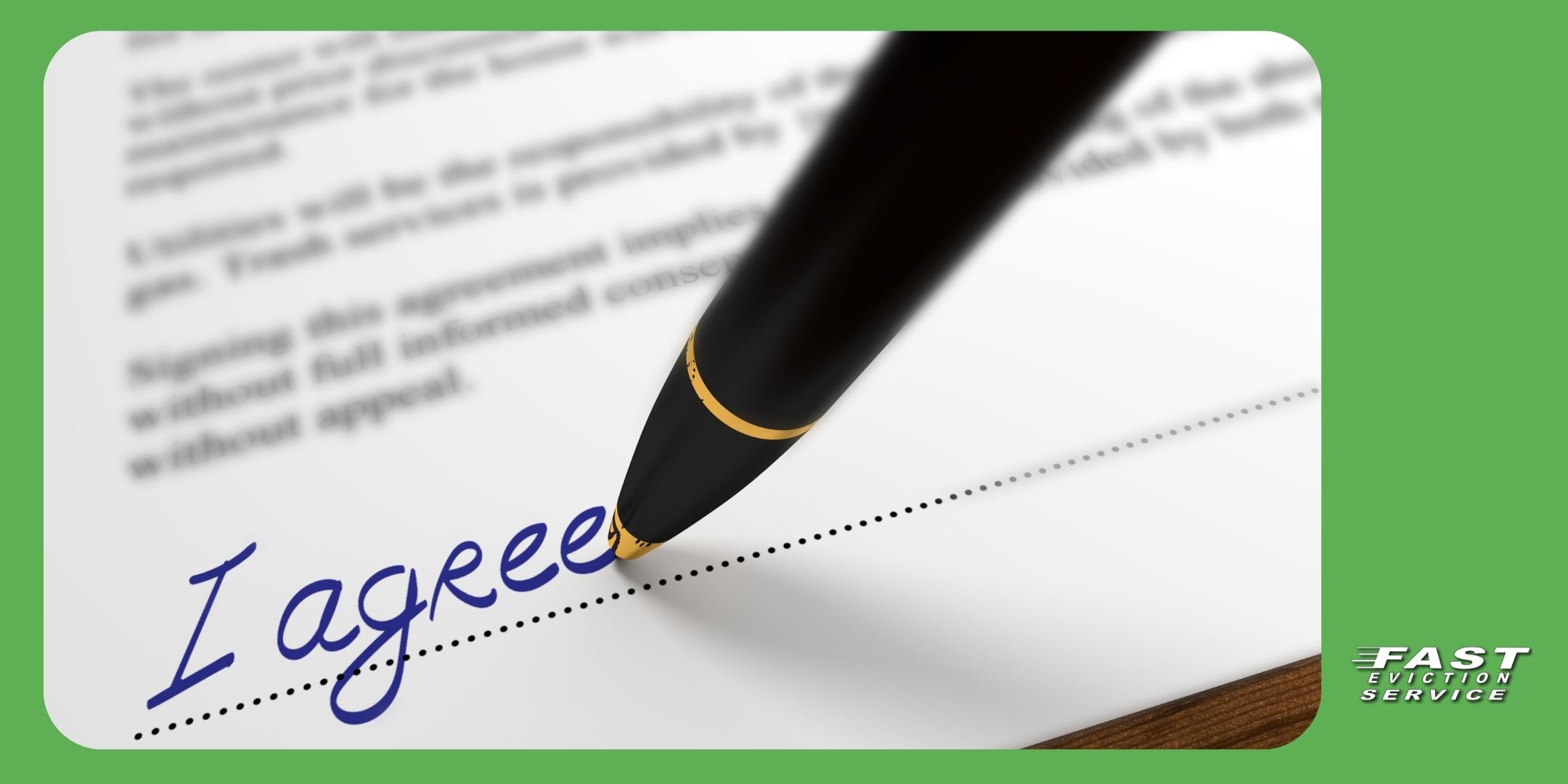Updated 04/01/25
Being a landlord isn’t just about collecting rent checks and watching your investment grow. Sometimes, it’s about navigating stormy waters and dealing with the kind of renters who make you question your sanity. If you’re a new landlord, brace yourself. If you’re a seasoned one, you’ve likely already met your fair share of problem tenants. Learning how to deal with difficult tenants is a crucial skill that separates the successful from the stressed. And the good news? You don’t have to go it alone.

This article is your roadmap to maintaining your sanity, protecting your property, and creating systems that prevent tenant troubles before they even start. From recognizing red flags to using airtight lease agreements and managing chronic complainers, we’ll break down everything you need to know. So let’s dive into the world of rental property management and learn how to handle bad tenants like a pro.
Table of Contents
- Common Signs of a Terrible Tenant
- How to Prevent Property Damage from Renters
- What to Do When Tenants Pay Late Every Month
- How to Handle Tenants Who Break the Law
- Managing Tenants Who Constantly Complain
- The Problem with Unauthorized Guests and Subletting
- Legal Steps to Take Before Evicting a Tenant
- Should You Hire a Property Manager for Bad Tenants?
- How to Create a Strong Lease That Protects You
- Best Practices for Long-Term Landlord Success
- Frequently Asked Questions
Common Signs of a Terrible Tenant
Before trouble moves in, it usually knocks with a few warning signs. Learning to spot a terrible tenant during the screening process can save you a mountain of future headaches. One of the most obvious red flags is inconsistent or incomplete information on rental applications. If a prospective renter can’t provide stable employment history or dodges questions about their rental past, take note.
Another major warning sign is someone who tries to negotiate everything upfront—like the deposit, the rent amount, or the lease terms. This often signals future resistance to rules. Likewise, an applicant with a history of frequent moves or evictions should raise concern. Understanding how to deal with difficult tenants starts with preventing them from moving in.
That’s where strong tenant screening tips come in. Always run a credit check, criminal background check, and call previous landlords. But don’t just ask if they paid rent—ask if they caused issues, respected property rules, and gave proper notice. Your gut instinct matters, too. If something feels off, it probably is.
How to Prevent Property Damage from Renters
One of the biggest landlord fears is walking into a unit only to find holes in the walls, broken appliances, or worse. Rental property damage prevention begins with proactive communication and clear expectations. When tenants know you’re attentive, they’re less likely to be careless.
Start by conducting a thorough move-in walkthrough with the tenant, documenting the unit’s condition with photos and a checklist. Make it clear that regular inspections will happen—ideally every 3 to 6 months, depending on your local laws. Most importantly, make sure your lease outlines what constitutes property damage versus normal wear and tear.
Problem tenants often think they can get away with damages if you’re not watching. Regular contact, professional boundaries, and detailed documentation can help you nip those problems in the bud. Clear policies about repairs and maintenance responsibilities also go a long way.
What to Do When Tenants Pay Late Every Month
Few things are more frustrating than chasing down rent. Chronic late payments disrupt your cash flow and put your property investment at risk. If you’re wondering how to deal with bad tenants who treat rent like an optional suggestion, it’s time to set clear consequences.
Your lease should include a late fee structure and a clear rent due date. When tenants pay late, issue a written notice immediately. Avoid making exceptions or you’ll encourage the behavior. Consistency is key. Some landlords find success using online rent portals that send automatic reminders and provide digital records.
If a tenant is struggling financially, consider a payment plan only after they’ve demonstrated good faith. However, be careful not to let compassion erode your business standards. Consistent late rent is grounds for non-renewal or even eviction in extreme cases. Having a process in place keeps you from making emotional decisions.
How to Handle Tenants Who Break the Law
Discovering that your tenant is involved in illegal activities can be alarming. Whether it’s drug use, vandalism, or illegal business operations, the stakes are high. As a landlord, you must act fast but carefully. First, gather any evidence and document everything.
Depending on your state, you may be required to report criminal activity to local law enforcement. Do not confront the tenant directly. Instead, consult a lawyer familiar with landlord-tenant law and follow your lease’s violation procedures. This protects you from retaliation claims or legal missteps.
The eviction process for landlords dealing with criminal tenants may be expedited depending on the nature of the offense. But even in those cases, you must follow due process. Patience and legal guidance are crucial here.
Managing Tenants Who Constantly Complain
Some tenants call about every creaky floorboard or drafty window. While some complaints are valid, constant complaining can drain your time and energy. It’s tempting to ignore them, but that can backfire. Instead, document all complaints, including how and when you responded.
Often, these tenants are seeking attention or control. Respond promptly, but set communication boundaries. Let them know you’ve received their concern and will respond within a specific time frame. This establishes expectations and gives you breathing room.
Learning how to handle tenant complaints without losing your cool is a skill worth mastering. Regular property maintenance and good tenant communication help reduce the volume of complaints over time. But sometimes, the best solution is to not renew the lease.
The Problem with Unauthorized Guests and Subletting
A quiet lease violation that can become a big problem is unauthorized occupants in rental properties. Maybe your tenant has a partner move in “just for a few weeks,” or they’re Airbnb-ing the spare bedroom. These situations lead to safety concerns, increased wear and tear, and liability issues.
Your lease should strictly outline who can reside in the unit and under what conditions guests are allowed. Any unauthorized occupant staying beyond the lease terms is considered a violation. If subletting is not permitted, spell that out clearly.
When you notice signs of extra residents—more cars, more noise, or neighbors reporting unusual traffic—investigate right away. Issue a warning letter and request compliance. If the behavior continues, document everything and begin the formal lease violation process. Acting early protects your property and avoids bigger legal issues later.
Legal Steps to Take Before Evicting a Tenant
Eviction isn’t just a business decision—it’s a legal process. No matter how bad the tenant is, you cannot simply lock them out. The eviction process for landlords must follow specific state laws and timelines, or you risk legal repercussions.
Start by issuing the appropriate notice: Pay or Quit, Cure or Quit, or Unconditional Quit, depending on the violation. Then file a formal eviction with the local court. Always document every communication and lease breach. You’ll need this in court.
Avoid informal pressure tactics like shutting off utilities or changing the locks. These can get you sued for unlawful eviction. The key is to stay calm, follow the process, and work with an attorney if the situation escalates. Some landlords also recover costs by pursuing damages in small claims court.
Should You Hire a Property Manager for Bad Tenants?
If you find yourself constantly stressed out by difficult tenants, it might be time to hire a property manager. These professionals handle everything from tenant screening to late rent collection and eviction notices. That means fewer headaches and more time for you.
Hiring a property manager can be especially helpful for landlords with multiple units or out-of-town properties. They know how to deal with bad tenants effectively and often have systems in place to avoid tenant problems in the first place.
Still, hiring help comes at a cost—usually around 8-12% of monthly rent. However, the time saved and reduced stress can be worth every penny. If you’re burned out or feeling overwhelmed, outsourcing property management may be your best investment yet.
How to Create a Strong Lease That Protects You
Everything begins and ends with your lease. A strong lease agreement is your best defense against terrible tenants. It should clearly define rent due dates, late fees, occupancy limits, maintenance responsibilities, pet policies, and eviction terms.
Many landlords make the mistake of using generic online leases that don’t comply with their local laws. Work with a real estate attorney or property management company to craft a lease tailored to your specific situation. Clear language reduces confusion, conflict, and legal risk.
Lease violations should trigger a predictable response—this consistency makes it easier to enforce rules and keeps your landlord-tenant relationship professional. Remember, your lease is a legal contract. Use it to your advantage.
Best Practices for Long-Term Landlord Success
Being a landlord is about more than just dealing with difficult tenants. It’s about building systems that help you avoid those tenants in the first place. Stay proactive. Use thorough tenant screening tips. Maintain your property. Keep communication professional and clear.
Know the laws in your state and stay current on changes. Keep digital records of all correspondence and inspections. Build a network of reliable professionals—attorneys, contractors, property managers—who can support you when issues arise.
Most importantly, treat landlording like a business. When you operate with structure and consistency, even problem tenants won’t throw you off course for long.
Frequently Asked Questions
What’s the best way to deal with difficult tenants?
Stay calm, professional, and document everything. Use your lease to enforce rules and seek legal help if needed.
Can I evict a tenant without going to court?
In most states, you must follow a formal legal eviction process, which includes court involvement.
How do I avoid renting to bad tenants?
Use thorough tenant screening—check references, run background checks, verify income, and trust your instincts.
Is hiring a property manager worth it?
If you’re overwhelmed, absolutely. They can save you time, stress, and often improve tenant relations and property maintenance.

